How Do Alcohol and Cannabis Affect Sleep Apnea?
Posted by Dr. Michael Breus
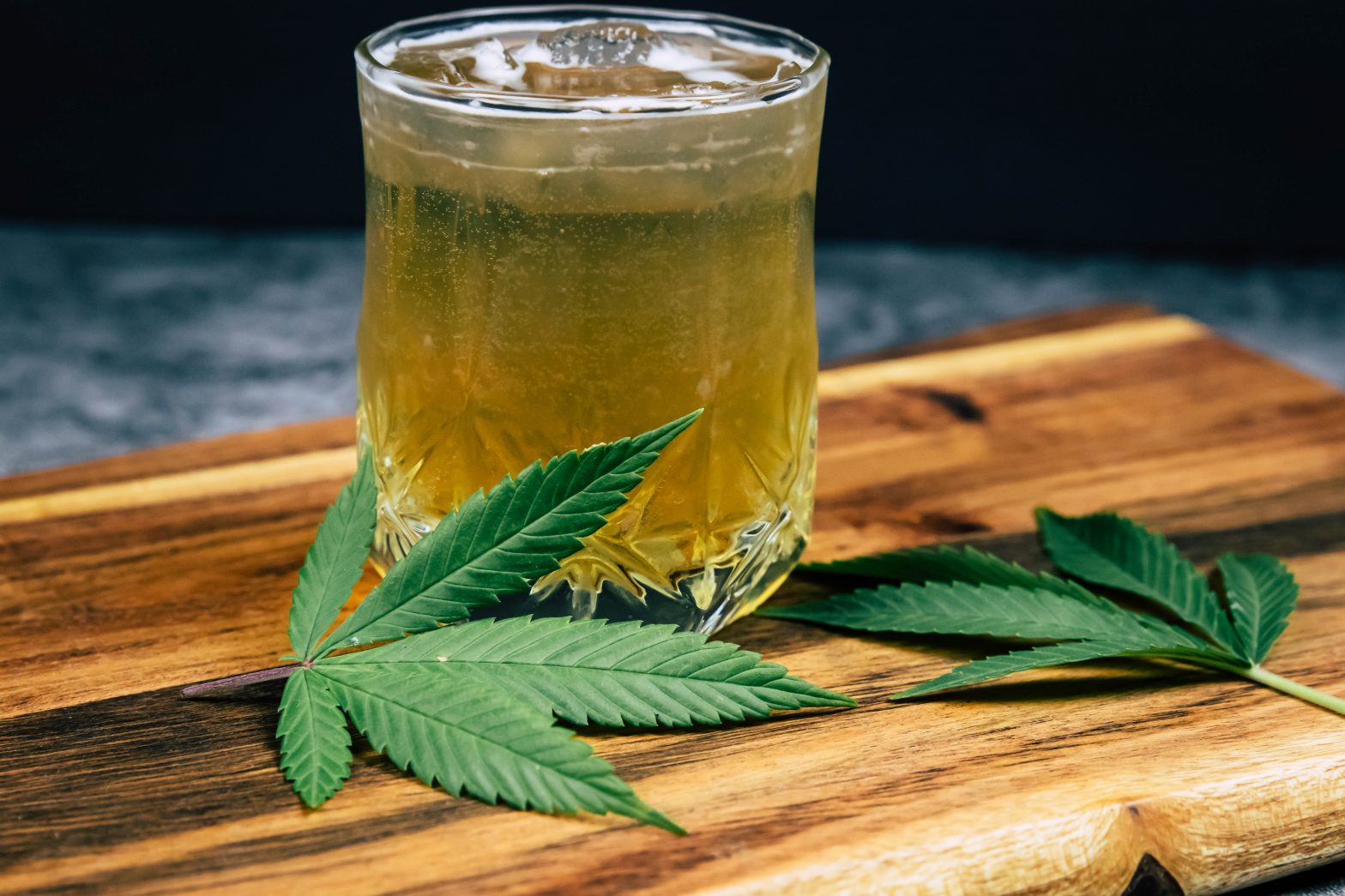
Very differently. Here’s how you can use both and protect your breathing and sleep.
Alcohol and cannabis are our most popular recreational substances, and both have long histories with sleep. For centuries, people have sought relief for sleep problems from the intoxicating, sedating effects of alcohol and the relaxing, sedating effects of cannabis.
A diagnosis of OSA typically comes with a bunch of new guidelines for daily living. Diet and exercise recommendations, nightly therapy with CPAP, all bring about changes to our routines. What about drinking alcohol and consuming cannabis? Are they off limits, or is it okay to use these substances? What are the downsides—and are there any potential upsides for sleep and sleep breathing?
Alcohol and cannabis have significantly different effects on sleep and sleep apnea. Let’s take a closer look at how each substance interacts with sleep, and how you can manage your consumption to maintain healthy sleep breathing and high-quality rest.
Alcohol and sleep apnea
Alcohol is, far and away, the single most frequently used sleep aid. More than cannabis, more than natural remedies, more than prescription medications for sleep, people around the world turn to a “nightcap” to help themselves fall sleep. (At least 20% of adults in the U.S. use alcohol to help them fall asleep, says the research.) Many people rely on alcohol for sleep assistance without even realizing they’re doing it.
Alcohol does often facilitate initial sleep—there’s a reason why it’s the most popular self-medicating sleep aid around–but alcohol can worsen sleep quality and make sleep more fragmented and restless. And alcohol can complicate and worsen sleep apnea. This doesn’t mean you have to forgo alcohol entirely. But it’s important to understand the effects of alcohol on sleep in general and sleep apnea in particular, and to make some smart, informed choices about when and how much you consume.
How does alcohol affect sleep?
Having an evening drink can feel relaxing to the mind and the body. Alcohol acts as a sedative in the body, and consuming alcohol before bed can make you drift off more quickly. Especially if you have difficulty falling asleep at night, you may feel as though those sedative effects of a moderate amount of alcohol are helping your sleep.
But alcohol in the bloodstream at night creates a number of complications for sleep.
Alcohol alters normal sleep cycles, increasing time spent in deep sleep in the very first part of the night and increasing time spent in light sleep as the night wears on. Once alcohol is metabolized and its initial sedative effects wear off, there’s a stimulating “rebound effect” that occurs, which brings about lighter sleep and a greater tendency for frequent micro-awakenings in the second half of the night. Alcohol also diminishes time spent in REM sleep.
Alcohol disrupts circadian rhythms, the biological clock that regulates our sleep-wake cycles, allowing us to sleep soundly and on a consistent schedule. The effects of alcohol on circadian rhythms can persist for several days after you’ve had a drink.
Alcohol suppresses the sleep hormone melatonin. Even a moderate amount of alcohol consumed within about an hour of bedtime reduces melatonin levels by almost 20%, according to research.
Alcohol disrupts the body’s internal sleep drive, also known as sleep homeostasis. Alcohol elevates levels of adenosine, a neurotransmitter that induces drowsiness and sleep. Adenosine, like nearly all our hormones and brain chemicals, functions on a bio-time cycle: levels of adenosine build gradually throughout the day, contributing to a gradually growing need for sleep that peaks in the evenings. By artificially boosting adenosine and interfering its natural 24-hour rises and falls, alcohol disrupts the body’s internal sleep-wake cycle.
The result of these alcohol-induced effects? Restless and disrupted sleep that is less refreshing and less restorative to the body and mind. And it’s not just heavy drinking that causes sleep disruption. Moderate amounts of alcohol consumed too close to bedtime will have these effects.
How does alcohol affect sleep apnea?
Alcohol consumption can increase the risk of developing sleep apnea, and also can worsen the severity of sleep apnea. A recent review of research indicates that sleep apnea risk is about 25% higher for people who drink alcohol, compared to those who don’t. And moderate alcohol consumption has been shown to worsen the severity of sleep apnea, increasing the frequency of apnea episodes.
Alcohol affects sleep breathing in a couple different ways. Alcohol has a relaxing effect on muscles—including the muscles of the airway. A more relaxed airway is more prone to narrowing and to closing altogether, leading to the compromised breathing that’s the hallmark of OSA. (It’s also going to make your snoring and sleep-breathing louder, and more disruptive to your partner’s sleep.)
The sedating effects of alcohol also make the body slower to respond to episodes of obstructed breathing. The micro-awakenings that occur with sleep apnea are, in part, the body’s way of forcing a reopening of the airway and a restoration of normal breathing. With alcohol in our system, that protective response takes longer to happen, and pauses in breathing last longer as a result, making sleep apnea more severe.
Even very moderate drinking can have a significant negative impact on breathing during sleep. Researchers at University of Wisconsin, Madison investigated the sleep breathing of people who consumed no more than two drinks per day, and found that each single alcoholic drink consumed increased the risk of sleep-disordered breathing by 25%. The study uncovered some gender differences regarding this impact. The negative effects of alcohol on sleep breathing applied to men, but not to women. The scientists who conducted this study note, however, that the lack of impact on women that they observed may be due to the very small percentage of women in the study who consumed more than one drink daily.
How to use alcohol and get great rest
Enjoy a drink early in the evening. I recommend to my patients they do their drinking no closer than 3 hours before bedtime, so alcohol is fully metabolized before it’s time to sleep.
Consume in moderation. This one is a no-brainer. When you enjoy a drink, try making it just that—a single drink. (Get the good stuff and savor it.) Each single additional drink raises risks for disrupted sleep and disrupted sleep breathing. Excessive and binge drinking will wreak havoc with your sleep and your health.
Avoid drinking daily. I advise my patients to enjoy a drink 2 or 3 times a week, not every day. This provides enough room to enjoy an after-work cocktail or a glass of wine with dinner, and crack open a beer after a weekend’s worth of chores around the house—all without interfering with healthy sleep and circadian rhythms. Consuming alcohol occasionally, rather than daily, is particularly important for people who have or are at risk for sleep apnea, because of the excessive relaxation to airway muscles that even moderate alcohol can cause.
Use your CPAP or other OSA treatment consistently. Treating OSA and sleep disordered breathing is the key to sound sleep. It’s also what can enable people with OSA to continue to enjoy their favorite alcoholic drink now and then, without worsening their condition. If you observe negative changes to your sleep or your sleep breathing in connection with drinking, talk with your doctor.
Cannabis and sleep apnea
There are some significant differences between how alcohol and cannabis impact sleep. Alcohol, for all its popularity as a self-medicating sleep aid, is universally discouraged by sleep experts and physicians as a tool to help sleep. Cannabis, on the other hand, is increasingly being investigated and regarded as a therapy for sleep and sleep disorders, as well as for related conditions, both physical (pain, cancer) and psychological (anxiety, depression, PTSD), that have an impact on sleep.
How does cannabis affect sleep?
The answer to that question depends on the chemical makeup of the specific strain of cannabis being consumed.
When we talk about cannabis, we’re really talking about a whole group of related plants. Within nature, there are different strains of cannabis with distinct characteristics, and each has different effects on the human body. Specific cannabis strains are cultivated with particular compounds, characteristics, and effects in mind. You’ve probably heard about two major cannabis strains: indica and sativa. Sativa strains are generally regarded as alerting and stimulating, while indica strains are considered relaxing, calming, and sedating. Recent research has shown indica strains are often being used to help with insomnia, and with sleep-disrupting conditions including chronic body pain and headache.
Cannabis has hundreds of bioactive compounds that can affect human functioning, including effects on sleep. (I’ve been writing about cannabis and its impact on sleep for several years. You can check out those articles here.) When selecting a strain of cannabis that won’t interfere with sleep, there are a couple of main types of bioactive compounds to keep in mind.
Cannabinoids. You’ve probably heard of THC and CBD, two of the most common and well-studied cannabinoids among dozens found in cannabis. THC is the major psychoactive compound in cannabis—it’s responsible for the “high” that is associated with cannabis. THC also has sedative properties. CBD is non-psychoactive—there is no “high” that comes from this compound. It has both alerting and relaxing capabilities, depending on the concentration being used. CBD appears to aid sleep primarily through relaxation and relief from anxiety.
Terpenes. Terpenes are tiny, aromatic molecules in cannabis that create its smell and taste. Terpenes aren’t only found in cannabis—they’re found in many natural plants, fruits and flowers. Science shows terpenes have effects on energy, mood, sleepiness and alertness. Some terpenes that have been identified by scientists as helpful to sleep are:
Myrcene
Caryophyllene
Limonene
Terpineol
Linalool
How does cannabis affect sleep apnea?
Cannabis research is still in its relative infancy when it comes to sleep and sleep apnea. Laws prohibiting its recreational and medicinal use have put a damper on the interest and ability of scientists to pursue the study of cannabis in humans, for sleep and for health more broadly. As laws—and attitudes—about cannabis change, we’re seeing more attention from the scientific community. That’s a good thing.
There’s some fascinating preliminary evidence that cannabis may be useful as a therapy in treating obstructive sleep apnea. Research shows that a synthetic version of cannabis helps the brain to exert better control of the airway muscles during sleep, and can reduce the shallow and temporarily interrupted breathing of sleep apnea.
Because of the current limited scientific information on the safety, effectiveness, and tolerability of cannabis as a therapy for OSA, the American Academy of Sleep Medicine currently recommends against using medical cannabis for sleep apnea. That may change, as scientific investigations into the therapeutic potential of cannabis continue to deliver new information.
How to use cannabis and get great rest
Know the laws where you live. For Americans, the state laws governing cannabis for medical and recreational use continue to change. Even if you live in a state where cannabis is legal without a prescription, I recommend checking with your doctor, as you would before using any sleep aid or supplement. This is particularly important for anyone with a diagnosed sleep disorder, including sleep apnea, or anyone who is experiencing disrupted sleep.
Select a sleep-friendly strain. A lot of people think about selecting cannabis in terms of selecting between indica and sativa strains. One way to target strains of cannabis to meet specific sleep and health goals is to go beyond the indica-sativa distinction, and focus on different strains with specific compositions of cannabinoids and terpenes. Speaking broadly, sleep-friendly cannabis strains are ones that contain relaxing terpenes, a balance of CBD, and a not-too-high concentration of THC.
Educate yourself. Don’t be shy about asking a lot of questions, and working with your physician and dispensary to make an informed choice about using cannabis. Make sure the professionals you’re working with know that protecting your sleep is a top priority.
Understand the side effects. Cannabis can be used without compromising sleep. It does have side effects that you should know. They include:
- Next-day grogginess, especially with overuse and/or a high-THC strain.
- Overuse and high-THC strains can also produce dry mouth, euphoria, and increased appetite after ingestion
- After extended use, possible withdrawal symptoms that may include changes to mood (feelings of anxiety or depression) and changes to sleep (trouble falling asleep, vivid dreams)
Explore non-smoking delivery methods. There are different ways to ingest cannabis besides smoking, which obviously carries health risks. If you’re considering cannabis, I recommend using a tincture so you don’t expose yourself to the health hazards associated with smoking.
Consume in moderation. Broadly speaking, people may be more likely to consume more alcohol than cannabis. This may have a lot to do with differences in how these substances are consumed and take effect in the body. Cannabis can be consumed in several different methods, each of which have distinct times for onset of effects. Vaping and smoking cannabis delivers effects within seconds, whereas some topicals may take a few minutes, and other delivery methods (oils, tinctures, edibles) can take 15 minutes or longer. When the effects of cannabis are delivered quickly, there may be less of a tendency to continue consuming—and risk overconsumption that might disrupt sleep. That said, it’s important to practice moderation with cannabis. Excessive cannabis use will disrupt sleep and can make any eventual withdrawal particularly hard on sleep.
Use your CPAP or other OSA treatment consistently. Your ability to breathe normally during sleep is critical to your health, your mood and stress, your mental sharpness, your quality of life. When we’re short on good rest, we’re more likely to rely on substances to relax us, to elevate and stabilize our moods. We’re also less likely to make smart judgment calls about what’s good for us, and where the line is between enough and too much. Sticking with CPAP therapy treats the sleep disorder and keeps us better able to navigate decision making and consumption of cannabis and other substances.
Sweet Dreams,
Michael J. Breus, PhD, DABSM
The Sleep Doctor™
www.thesleepdoctor.com


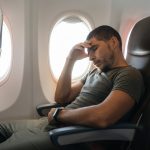
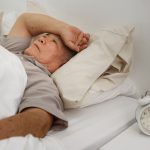

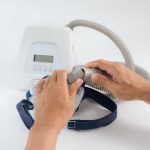
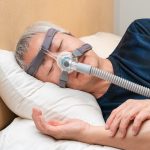
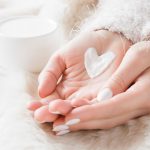

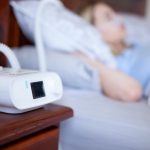


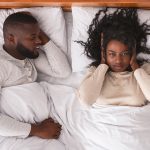
For a long time I’d heard that alcohol causes your body to not fully go into a sleep state, even though you’re unconscious, you’re not truly in a restful state. I think the key takeaway is that moderation is key. Anything in small doses is fine but overdoing it can have negative and obvious side affects.
Alcohol can initially relax the muscles in the airway, which can worsen snoring and contribute to the occurrence of sleep apnea. Additionally, alcohol can disrupt normal sleep patterns, including the stages of deep sleep and REM sleep, which are essential for restorative sleep. Disrupted sleep can lead to excessive daytime sleepiness, fatigue, and worsening of sleep apnea symptoms. Therefore, individuals with sleep apnea should avoid or limit alcohol consumption.
Cannabis can also affect sleep apnea in different ways. Some studies have suggested that cannabis use may help reduce the severity and frequency of sleep apnea episodes by relaxing the muscles in the airway, promoting better breathing during sleep. However, more research is needed to confirm this effect. On the other hand, regular cannabis use may also lead to changes in sleep patterns and disrupt sleep quality, leading to fatigue and worsened sleep apnea symptoms.
Overall, it is important for individuals with sleep apnea to discuss their alcohol and cannabis use with their healthcare provider and to make lifestyle choices that promote healthy sleep habits.
Great Post! It’s essential for individuals with sleep apnea to consult with healthcare professionals before using alcohol or cannabis as sleep aids. Both substances can have individualized effects, and their impact on sleep apnea may depend on various factors, including dosage, frequency of use, and the presence of other health conditions. Additionally, lifestyle modifications and evidence-based treatments are often recommended as the primary approaches for managing sleep apnea.